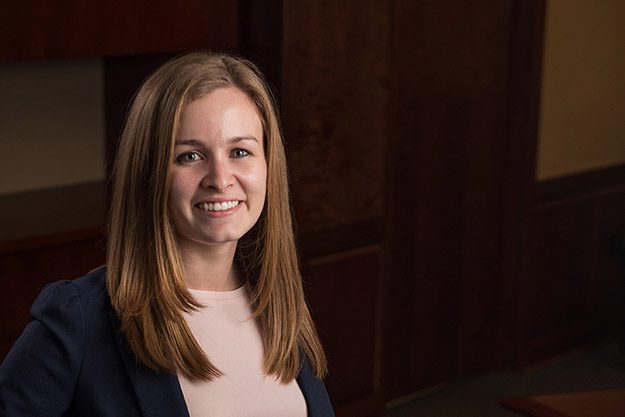Article
Resources
Article
Unprecedented: COVID-19 Litigation Trends - Issue 16, 2020

This 16th edition of Unprecedented, our weekly update on COVID-19-related litigation, discusses claims ranging from insurance coverage disputes to prisoners’ rights. The top story this week, however, is undoubtedly a Michigan ruling that dismissed business interruption claims on the merits—a major early victory for insurers. Even so, it seems doubtful that this one ruling will slow down the flood of coverage disputes. As with so many other cases that have arisen in the course of COVID-19, the stakes are simply too high to give up after one defeat.
We hope you find these cases, and the questions they raise, to be informative.
Are insurance coverage cases still being filed?
In early July, a Michigan judge issued the first-known decision deciding COVID-19 insurance coverage claims on the merits. In her ruling, delivered from the bench, the Judge indicated that COVID-19 did not tangibly alter property in order to provide coverage and, even if it had, the applicable policy’s virus exclusion would have barred the claim. News coverage is available here.
This ruling marks a significant victory for the insurance industry, which has uniformly taken the position that standard policies do not provide coverage for COVID-19-related impacts. Nonetheless, business owners show no signs that they are giving up on efforts to contest their insurers’ coverage denials, and they’re even drawing insurance brokers into the mix.
A recent case from Philadelphia County in Pennsylvania offers just one example. The plaintiffs, restaurant owners and a landlord, allege that their insurer has wrongfully refused to pay out for losses from government-imposed shutdowns under their policies’ business interruption and civil authority coverage. In what is now so common as to be a pattern, the plaintiffs allege that their insurer cannot deny that they experienced property damage, since Pennsylvania Governor Wolf cited potential property damage as one of the justifications for his original emergency orders. If the court disagrees, however, the plaintiffs offer an alternative path to recovery: that their broker acted negligently when it failed to help them secure coverage that would have protected them in the event of a virus-based pandemic. The complaint is available here.
Are the cruise lines suits going the way the plaintiffs expected?
On July 14, 2020, a federal judge dismissed with prejudice two claims against Princess Cruise Line Ltd. in the Central District of California. In the two suits, cruise ship passengers Ronald and Eva Weissberger, Michael and Wyonnie Austin, and Kenneth, Austin, and Lucille Nickens, all sued the cruise line claiming emotional distress caused by their fear of being exposed to COVID-19. None of the plaintiffs had COVID-19 symptoms, nor did any of them test positive for the virus. Instead, the complaints alleged the cruise line allowed them to board a ship in March, knowing that a number of passengers who had recently disembarked had symptoms of COVID-19. These plaintiffs were among nearly 100 passengers who all filed similar suits seeking $1 million for the emotional distress caused by boarding the Grand Princess vessel in February 2020.
Under the federal maritime law provision invoked, plaintiffs must satisfy the 'zone of danger' test, which requires either a physical impact caused by the defendant's negligent conduct or proof that they were placed in immediate risk of physical harm from the conduct. Because none of the plaintiffs had symptoms of the virus, the judge found their claims could not proceed. In the opinion, U.S. District Judge R. Gary Klausner noted that "given the prevalence of COVID-19 in today's world, plaintiffs' proposed rule would lead to a flood of trivial suits, and open the door to unlimited and unpredictable liability." Click here to read news coverage.
Will anyone go after price gouging?
West Virginia Attorney General Patrick Morrisey is cracking down on egg prices during the pandemic. In a complaint filed last Tuesday, Morrisey alleges that Green Valley Poultry Farms is “engaging in unfair or deceptive acts or practices in regard to the unfair pricing of eggs during a declared state of preparedness and state of emergency.” Morrisey alleges Green Valley Poultry Farms and its owner, Dutt & Wagner of Virginia, Incorporated, increased the wholesale price of eggs between 228 and 297 percent during the state of preparedness declared by West Virginia Governor Jim Justice. Throughout the pandemic, we have seen lawsuits alleging price gouging in connection with a variety of products like hand sanitizer and PPE. Morrisey seeks an injunction preventing Dutt & Wagner from selling products for more than 10 percent “above the price charged by it for those goods and services on the tenth day immediately preceding the declaration of a state of preparedness or state of emergency through the end of the state of preparedness or state of emergency.” Morrisey also seeks disgorgement of money collected, restitution to consumers, and civil penalties. News coverage can be found here. The complaint is available here.
Will the prison suits continue as the plaintiffs hope?
The ACLU brought a lawsuit against the Minnesota Department of Corrections, Commissioner Paul Schnell, Warden William Bolin, and Minnesota Correctional Facility - Moose Lake in April 2020, pushing for early release of inmates from Moose Lake, claiming prisoners were not being adequately protected. On July 13, 2020, the District Court issued a Memorandum and Order Denying Writs of Mandamus and Habeas Corpus and Dismissing Petition.
As to habeas corpus, the court held an evidentiary hearing was not needed, “because . . . Petitioners have failed to establish Respondents’ deliberate indifference to Petitioners’ health and safety during the COVID-19 pandemic.” The court also denied mandamus relief, explaining, “Petitioners fail to cite any legal authority requiring the DOC or its facilities to take any particular action or that otherwise limits the agency’s discretionary choices on how to best respond to a pandemic.” Further, the court explained it would “not step beyond the bounds of its authority and usurp the role of the DOC, with its expertise and experience, on how the DOC further implements its response to the COVID-19 pandemic.”
The court concluded by outlining that the record “demonstrates Respondents recognize their duty to inmates and take seriously the threat of COVID-19, as reflected by their extensive measures to combat the virus.” The court further concluded that Petitioners failed to establish “that Respondents have been deliberately indifferent to the risks posed by the COVID-19 pandemic, nor have they shown other statutory or constitutional grounds for habeas corpus relief.” Thus, the court dismissed the petition. ACLU lawyer Dan Shulman announced following the ruling that Petitioners intend to appeal. News coverage can be found here, and the order can be found here.
How are high school sports programs responding to the pandemic and new regulations?
A new lawsuit in Illinois is challenging state guidelines for high school athletes to return to play this summer and fall. The Illinois High School Association ("IHSA") is a state organization that regulates competition in most interscholastic sports and some interscholastic activities at the high school level. Originally, the IHSA issued its Phase 4 "Return to Play" guidelines in early July, setting forth the rules and guidelines under which student athletes in Illinois could participate in team sports. However, a week later, the ISHA issued new Return to Play Guidelines that were notably stricter. These new guidelines required players to wear masks unless outside and socially distancing, prohibited contact drills, banned physical contact among athletes, and limited indoor activities to groups of 50 or fewer. This triggered a lawsuit, led by the same lawyer from other high-profile COVID-19 cases in Illinois, challenging the IHSA's authority to implement such guidelines. The lawsuit was filed at the local state trial court, and seeks a temporary restraining order to prevent the guidelines from taking effect. Despite the lawsuit, the IHSA argues that its new guidelines are necessary to protect the safety of student athletes, and reaffirmed its intent to comply with COVID-19 guidance from the Illinois Department of Public Health, Illinois State Board of Education, and Governor Pritzker's office. Given the nature of the relief requested, we believe some judicial ruling will be quickly forthcoming.
This lawsuit is one of many in Illinois challenging state guidelines regarding COVID-19, but is clearly applicable nationwide as sports at all levels are trying to determine how (or if) they can safely proceed. Football, one the fall's dominant sports, provides a great example. Some states have canceled high school football outright (Virginia and New Mexico) while a dozen others have pushed back start dates. Several college football conferences have canceled all sports this fall (Ivy League, Patriot League, the Mid-Eastern Athletic Conference and Colonial Athletic Association) while others have canceled all non-conference football games (Big Ten and Pac-12). Those college football teams continuing to practice and prepare for the fall season are seeing spikes in positive results. For example, Clemson University (Football Power Index ranked #1 for this pre-season) has had least 36 football players test positive for COVID-19 since early June, while West Virginia University has had 28. At the professional level, football players are slated to report to pre-season camps this month. Just yesterday, however, NFL players coordinated a Twitter response voicing concerns about the season moving forward and the insufficiency of the NFL COVID-19 guidelines currently in place. Given the many great unknowns surrounding COVID-19 and team sports, it will be vital to monitor lawsuits like this one against the IHSA to see if and how judicial intervention will play out.
What happened last week in face-covering litigation?
Next to litigation over shutdown orders, mask requirements have become the biggest flash point for governments’ authority to regulate public health. In past issues, for instance, we have discussed cases alleging that mask requirements are unnecessary and, alternatively, unlawful under the Americans with Disabilities Act. Last week, however, saw the biggest development in face-covering litigation to-date when Georgia Governor Kemp sued Atlanta Mayor Bottoms to preclude enforcement of that city’s mask order. Governor Kemp alleges that Mayor Bottoms' city-wide mask requirement conflicts with his state-wide order making masks optional and precluding more restrictive local ordinances. He also alleges that Mayor Bottoms has exceeded her authority, in conflict with his orders, by returning Atlanta to a more-restrictive Phase I status and limiting gatherings to 10 individuals rather than 50. The lawsuit is pending in a Fulton County, Georgia, trial court, and the complaint is available here.
Meanwhile, a Florida attorney filed his ninth lawsuit over mask requirements last week. In a statement to the press, the attorney presented the lawsuits as challenging government overreach rather reflecting any opposition to masks in general. News coverage is available here.
How is COVID-19 affecting the courts?
Judicial systems around the country have been forced to respond to the threat of COVID-19. For several months in the spring, courts extended deadlines, cancelled jury trials, and moved to televideo services for most court business. As the courts ease these restrictions, however, the return to normal operations is not going as smoothly as would be hoped.
In Allegheny County, Pennsylvania, for instance, the president judge issued an order prior to the courts reopening the first week of June instructing all employees and judges to wear face coverings. Even so, there were reports that employees, including judges, were not wearing face coverings during court proceedings. And in early July, three members of the Allegheny County District Attorney’s office tested positive for COVID-19. A veteran prosecutor tested positive and, according to his family, was in critical condition. After learning he had contracted COVID-19, the prosecutor filed a complaint against the Allegheny County court system with the Occupational Safety and Health Administration, alleging that the court system did not have adequate safety protocols in place to prevent the spread of the coronavirus. The Allegheny County president judge has now ordered that as many proceedings take place through videoconferencing as possible. Click here for news coverage.
In Tennessee, a recent appellate court ruling has called into question the constitutionality of using televideo testimony in criminal cases. The case, State of Tennessee v. Dennis Lee Seale, No. M2019-01913 (Tenn. App. Ct. July 20, 2020), held that the defendant in a felony-murder trial was denied his rights under the confrontation clause when the trial court permitted witnesses to testify via televideo. Although the Court refused to adopt a blanket rule requiring face-to-face confrontation, it ruled that a trial court must make a case-specific and witness-specific determination that such a denial is necessary to further important public policy interests. Tennessee courts conducting criminal trials during the COVID-19 era thus face the difficult choice of making individualized determinations to allow televideo testimony, which may be grounds for reversal, or requiring all witnesses to appear in-person.
Questions?
Spilman’s COVID-19 Task Force is monitoring litigation arising out of this pandemic to help keep our clients informed and in front of liability issues. Contact us with any questions or requests for tracking particular types of litigation arising out of the COVID-19 pandemic.




